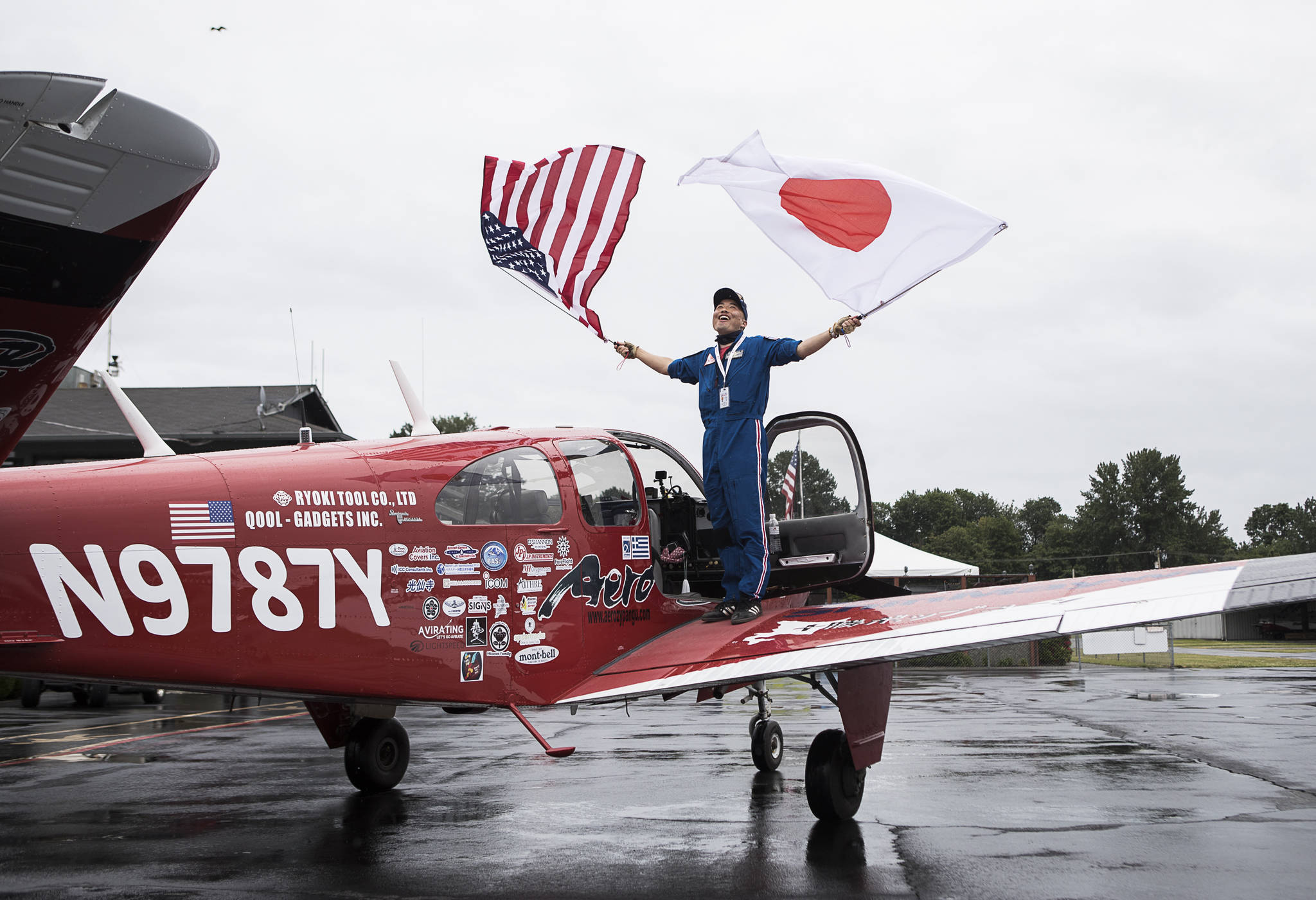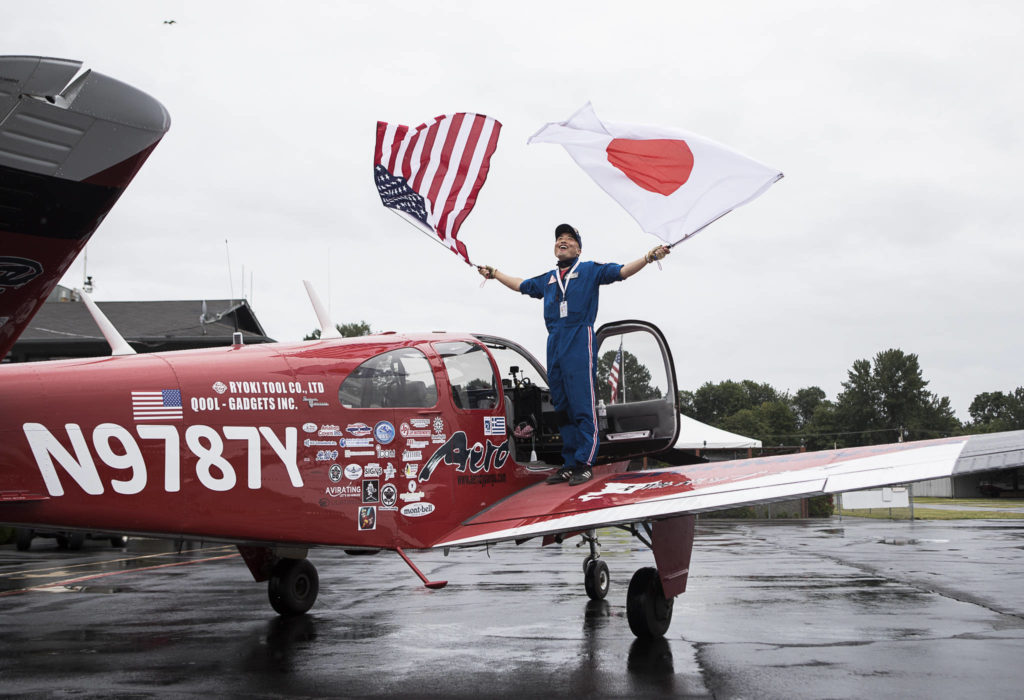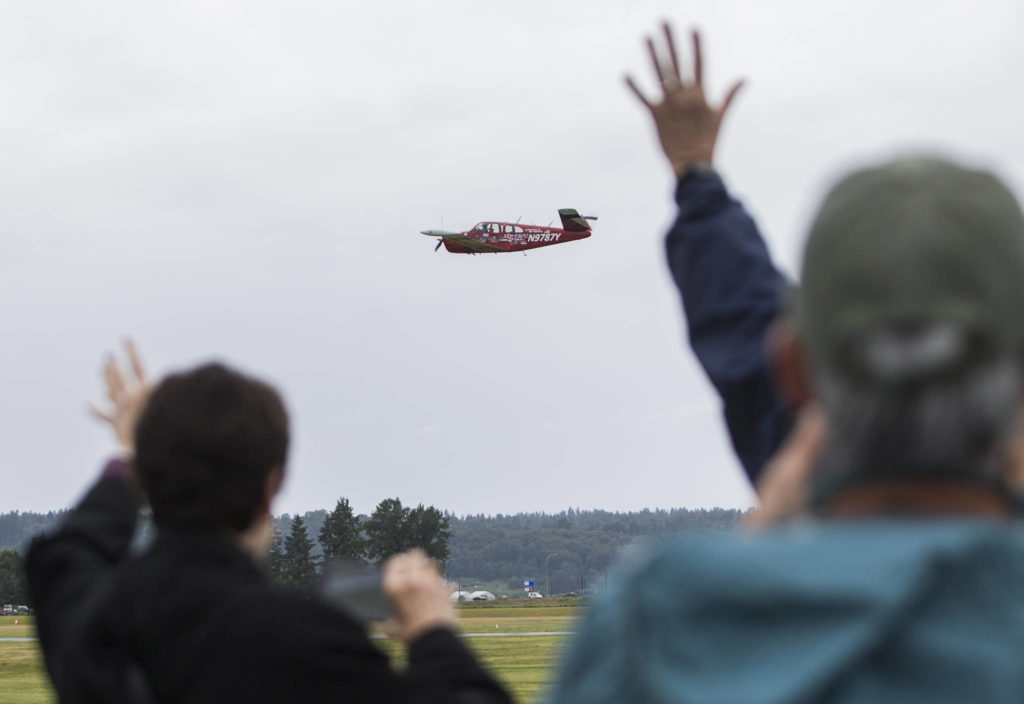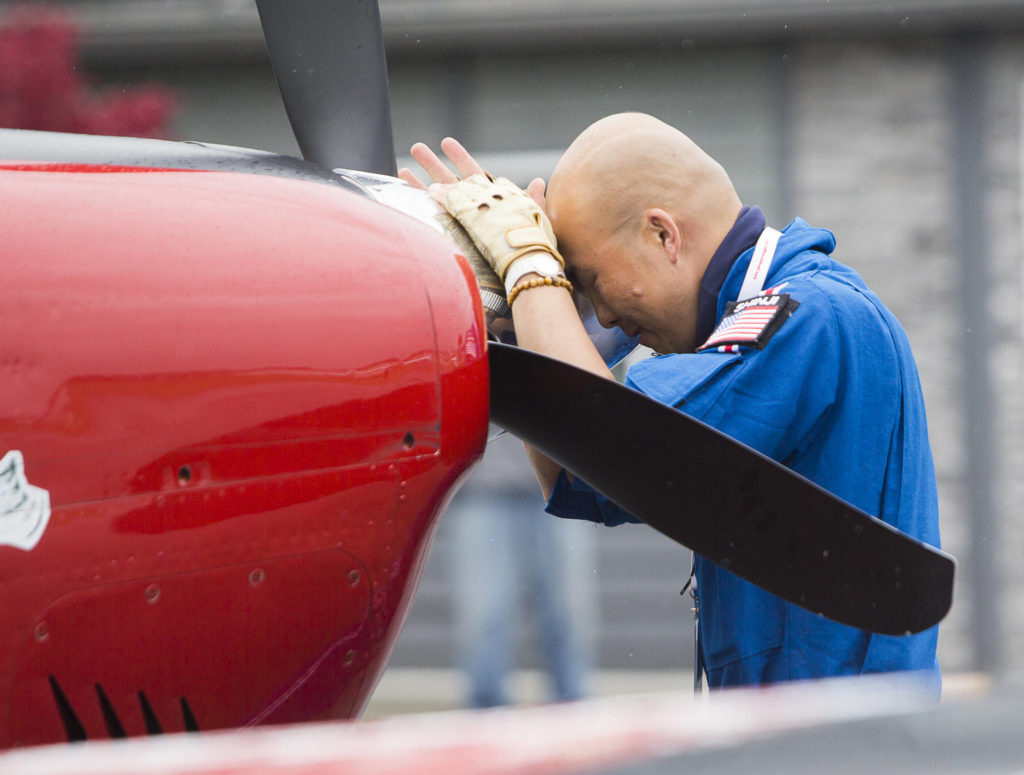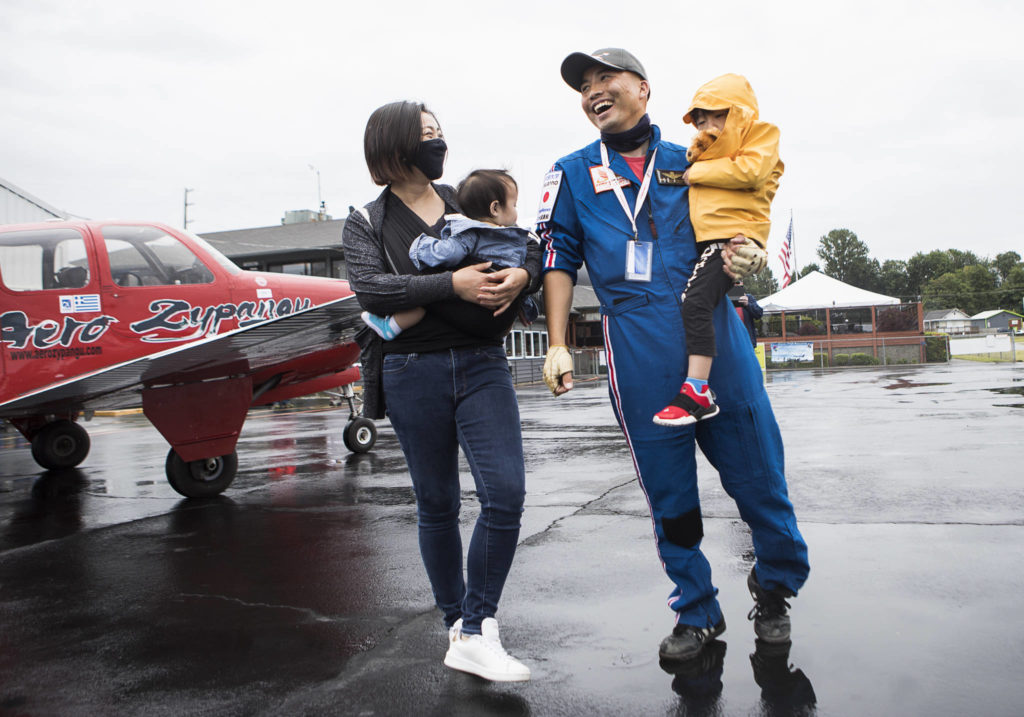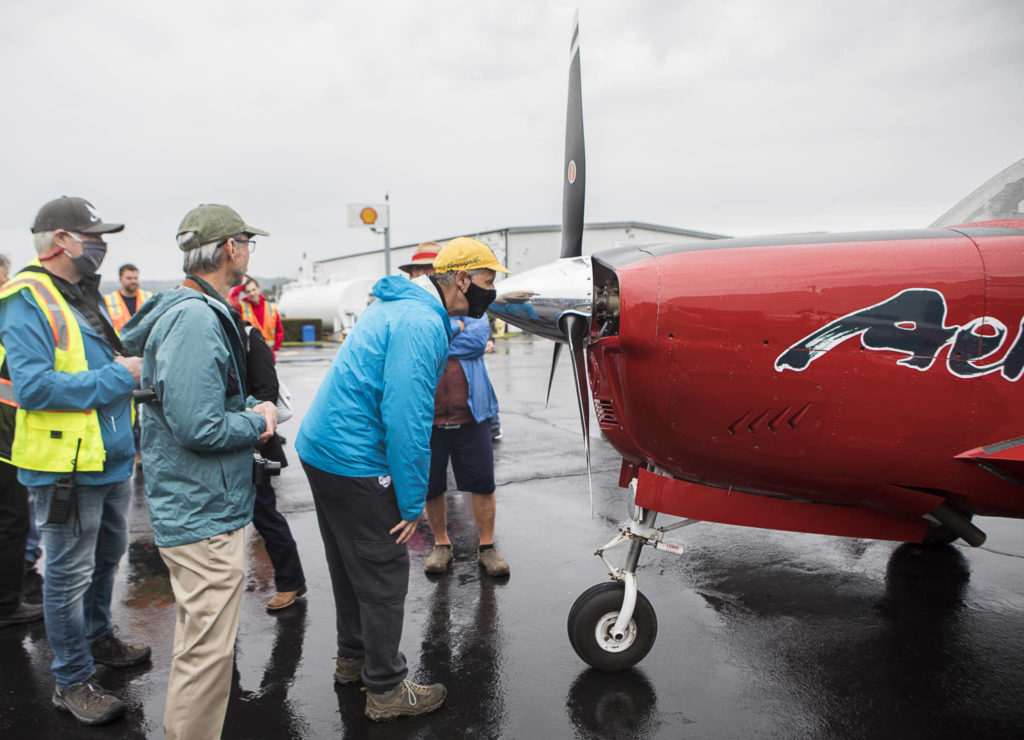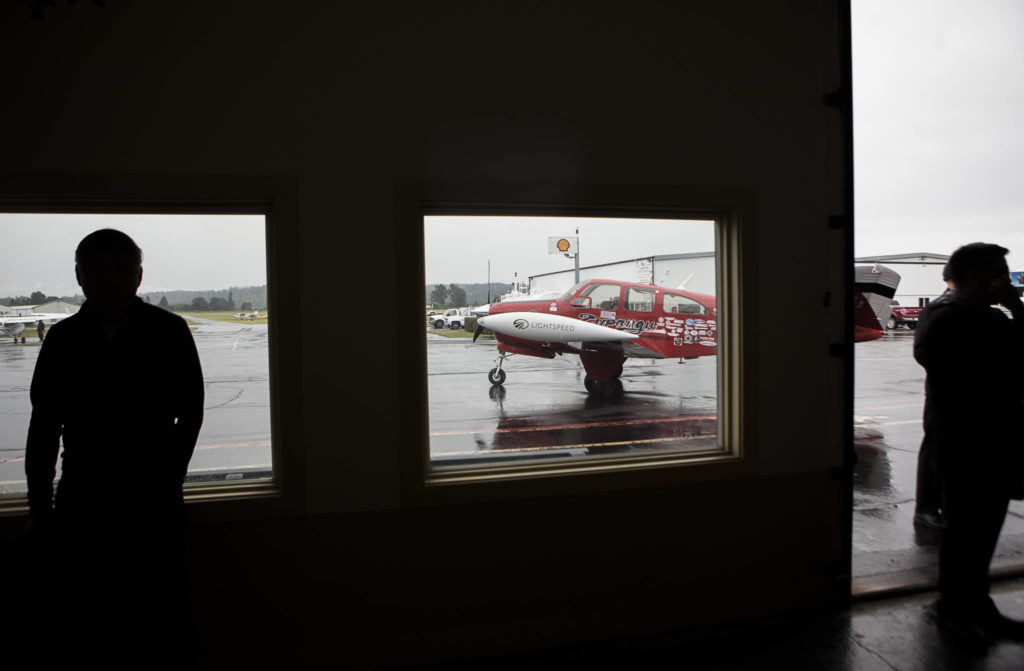SNOHOMISH — A solo pilot in a single-engine airplane touched down Friday afternoon at Harvey Field, concluding a 42-day around-the-world flight and a lifelong dream.
At age 18, Shinji Maeda was partially blinded in a car accident. In his native Japan, the injury prevented him from becoming a pilot — a childhood ambition.
But his family encouraged him to pursue his goal in the United States. Maeda attended Embry Riddle Aeronautical University in Prescott, Arizona, graduating with a master’s degree in safety science in 2005. That year he also became a single-engine pilot. Later he earned a multi-engine certificate and an instrument rating.
On Friday, Maeda, 41, fulfilled a second dream, flying around the world on a mission that the Mill Creek resident hopes will inspire “more people to pursue their dreams.”
Maeda, a flight instructor at Snohomish Flying Service at Harvey Field and a Boeing operations manager, is the founder of Aero Zypangu Project. The nonprofit group encourages people to challenge themselves, overcome obstacles and seize the skies.
On May 1, Maeda took off from Paine Field in the cockpit of a 1963 Beechcraft Bonanza P35, a single-engine airplane he calls “Lucy.” The 25-foot-long plane, with a 33-foot wingspan, sported a new engine, new navigation system, new propeller and snazzy red paint job, tail number N9787Y.
The “Earthrounder Mission” covered an estimated 22,000 nautical miles and touched down in more than 18 countries, including Canada, France, Greece, Bahrain, Thailand, Japan, South Korea and Russia.
On Friday morning, Maeda took off from Wrangell, Alaska, destined for Harvey Field, his final stop.
At 2:40 p.m., more than 30 people looked on and cheered as the red Bonanza appeared out of the gray clouds, made a celebratory circuit and dipped its wings as it flew past the viewing area.
A few minutes later, the plane landed. Maeda stepped onto the wing and waved American and Japanese flags.
“No more flying!” he announced happily as his wife, Makiko Maeda, and their two small children rushed toward him.
“This is my hope and dream — to inspire people to do as much as they can,” said Maeda, who describes himself as “a one-eyed pilot.”
“America gave me this opportunity,” he said of his quest to become a pilot and to circle the globe.
David Preston, a Boeing co-worker, recorded the mileage, flight time and each of the 43 stops Maeda made during his journey.
Mary O’Neill, a retired Boeing co-worker and friend, was also there to greet him. O’Neill, who kept tabs on the plane, told of the white-knuckle moments that Maeda encountered.
On the flight from Egypt to Bahrain, a sandstorm damaged the propeller, O’ Neill said. Even Friday’s flight from Wrangell to Snohomish had Maeda gripping the controls when ice accumulated on the wings, a dangerous condition that can bring a plane down.
In Facebook posts and videos, Maeda chronicled his adventures with descriptions of flying conditions and the people he met — on the ground and over the airwaves.
After three requests, a Tokyo-based air traffic controller finally gave Maeda the go-ahead to fly over Noto Airport near the aviation high school he attended.
“I flew over my school, and I am hoping that some of the student saw it and these kids will make Japanese aviation better in the future. I’m counting on them,” Maeda wrote in a Facebook post.
At one of his last stops, an airport in Russia, he took a ribbing from fellow pilots and airplane mechanics who were astonished he’d flown so far in such an “old” plane.
“When I said, ‘Lucy is 57-years-old,’ they were like, ‘No, way. In Russia, you are already dead with the aged airplane’,” Maeda wrote in a Facebook post.
The goodwill journey also included some personal moments.
Stopping at Chitose International Airport in Hokkaido, Japan, Maeda was able to see his mom and brother from behind an airport security fence. Strict COVID-19 regulations prevented him from leaving his aircraft for an up-close visit, Maeda said.
Still, he counted himself “lucky. I was able to see my mom and I was able to see her smiles,” he wrote in a Facebook post.
“There is nothing impossible. We deliver this message to many more people across the world. It is happening. We believe it’s possible,” Maeda wrote on Aero Zypangu’s website.
Maeda grew up on his family’s farm in Hokkaido. At age 18, his life hung in the balance when he was hit by a car. The impact fractured his skull and caused his brain to swell. “Doctors gave me a 50/50 chance of survival,” Maeda said. He recovered but lost the vision in his right eye.
“In Japan I was considered handicapped,” he said. “That meant I would not get a job or have a career. My father said to me, ‘Shinji, why not go to the United States and study aviation?’”
Janice Podsada; jpodsada@heraldnet.com; 425-339-3097; Twitter: JanicePods
Talk to us
> Give us your news tips.
> Send us a letter to the editor.
> More Herald contact information.
